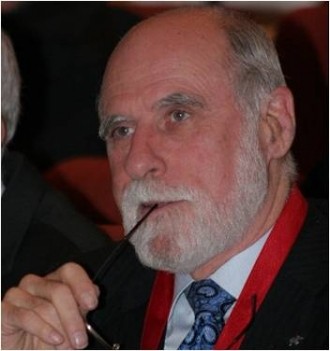One of the fathers of the internet, Vinton Cerf, widely known for creating the TCP/IP protocol took the opportunity in a recent NYT article to dismiss the idea that the internet is a civil or human right, saying that some people are missing the point entirely.
He argues that use of the internet is not a human right, but is merely a method of communication, and entities such as the United Nations should be concentrating on more fundamental worldwide problems and not on making broadband communications a human right.
"Technology is an enabler of rights, not a right itself," he writes. "There is a high bar for something to be considered a human right. Loosely put, it must be among the things we as humans need in order to lead healthy, meaningful lives, like freedom from torture or freedom of conscience. It is a mistake to place any particular technology in this exalted category, since over time we will end up valuing the wrong things."
Cerf continued, "The best way to characterize human rights is to identify the outcomes that we are trying to ensure. These include critical freedoms like freedom of speech and freedom of access to information --- and those are not necessarily bound to any particular technology at any particular time."
There is no doubt that the internet has been instrumental to the protests seen in the Middle East and parts of Northern Africa in the last year. With some governments taking to suppressing the internet in signs of trouble it is understandable that its citizens would want some form of civil or human right attached to its usage.
Cerf believes that the internet is a tool used to enable people to exercise their civil and human rights, as well as provide access to government information. It "is always just a tool for obtaining something else more important." His views contrast with comments made by World Wide Web inventor Tim Berners-Lee last year.
Ultimately, the internet itself is no more worthy of human rights than the telephone, mobile or even a road. Vint Cerf believes improving the internet is one of many means in which we can improve "human condition." But it is important that it is achieved whilst safeguarding civil and human rights that deserve to be protected, without the illusion that access alone is such a right.
